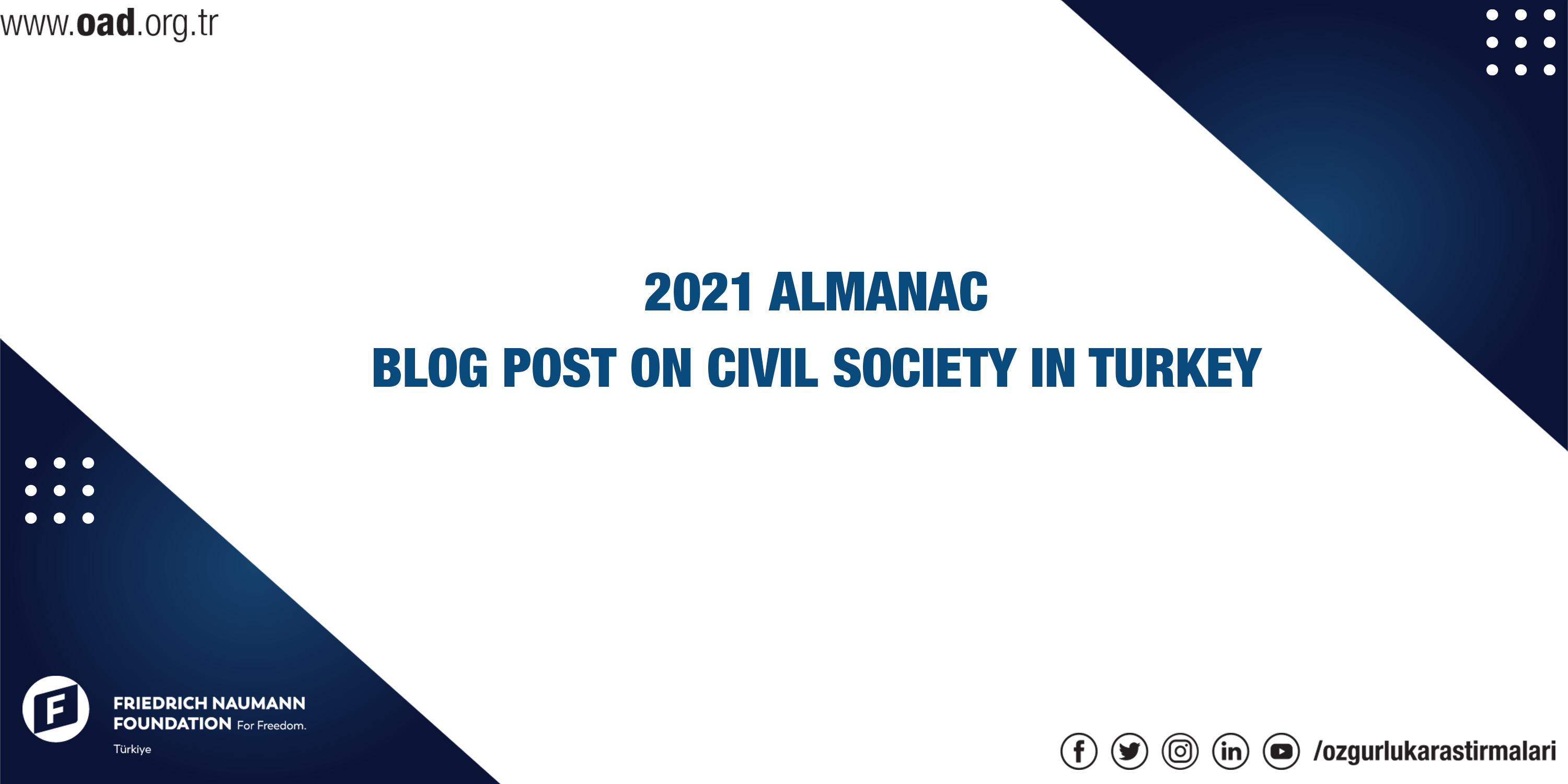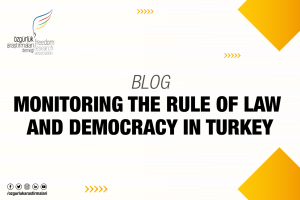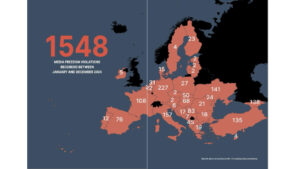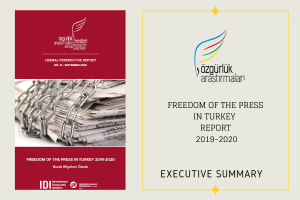Our report titled “2021 Almanac: The Rule of Law, Democracy, Civil and Economic Freedoms in Turkey” where we, in cooperation with Freedom House, compiled the work from the Freedom Observer bulletins was published in 2022. These bulletins’ topics consisted of the most compelling events in the field of rule of law, democracy, social and economic freedoms and civil society in the years 2020-21. This blog will compile the key events that occurred in Turkey in terms of civil society and offer a perspective unique to the year 2022.
Turkish civil society faced increasing pressure after the coup attempt in 2016, and while many non-governmental organizations were closed down, many of them tried to avoid the increasing pressure by changing the issues they worked on and making more limited campaigns. With the Law No. 7262 on the Prevention of the Proliferation and Financing of Weapons of Mass Destruction, which was published in the Official Gazette on December 31, 2020, the year 2021 frustrated Turkish civil society. Looking at the year 2022, it has been understood how justified the concerns of civil society regarding this law are. In 2022, closure cases were filed against various non-governmental organizations or measures were implemented to restrict their activities.
While the law was still in the proposal stage, the allegations of the lack of control of non-governmental organizations and support to terrorism were brought to the agenda through the pro-government mainstream media and politicians, and such allegations continued to be voiced by the same individuals and institutions in various ways throughout the year. Before the Law No. 7262, non-governmental organizations had to regularly report the cooperation they established, the funds they received, their member information, and all bank movements through the DERBİS system of the General Directorate of Civil Society Relations under the Ministry of Interior. In case of failure in notifications or a problem detected as a result of notifications, NGOs were inspected by the Provincial Directorate of Associations or the Ministry of Interior. However, the relevant law introduced the rule that all non-governmental organizations should be regularly audited at least once every three years. The administrative workload created by this situation and the general belief that the inspections would be carried out for political purposes created a year-long unease on non-governmental organizations. Trustees to associations and confiscating their assets has been reduced to a simple administrative process has also started to threaten the existence of non-governmental organizations.
Some of the non-governmental organizations, which have to continue their work by establishing cooperation with different organizations from abroad, have often become the target of pro-government media and social media accounts due to their critical positions on the government’s actions. The method of targeting by using allegations of espionage and spying has been carried out regularly for all non-governmental organizations that take a critical position on different issues and has been used as a justification for increasing administrative pressures against non-governmental organizations. Non-governmental organizations, which caused discomfort in the government circles because of their work, were first tar geted in the social media and then in the mainstream media, and then audited by the Ministry of Interior.
Audit processes have been experienced in different ways for non-governmental organizations of different political views. While non-governmental organizations that were pro-government or did not take a critical position towards the government, easily circumvented the inspections, or did not come under inspection, many non-governmental organizations that could be deemed to have oppositional views were both subjected to very long and detailed inspections and were inspected twice in the same year. The closure cases filed against various civil societies in 2022 are proof of how this law was used in favor of the government, but also deeply affect the structure and relations of civil society.
The relevant Law should be seen as the biggest blow to Turkish civil society for 2021. As a matter of fact, the authoritarian wave that has already gripped the country since the law came into force has narrowed the field of activity of civil society considerably. It should not be surprising that in countries like Turkey that have entered the process of conservative authoritarianism, governments primarily target civil society.





